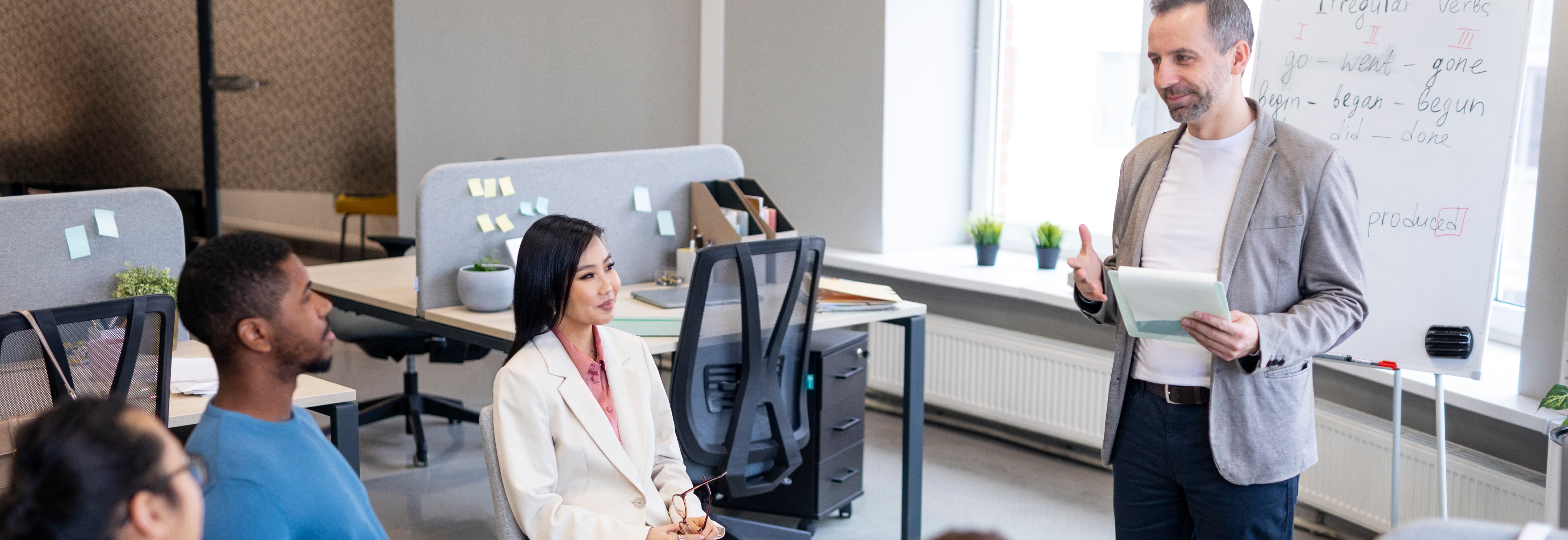Of late, we have had an increasing trend of clients requesting for Team building sessions to be conducted in Hindi or that interesting mix of English & Hindi, popularly referred to as Hinglish.
A few months back, I had this enlightening experience in Singapore. I was just heading out to join the group, when one of the organizers, a Singaporean Chinese, walked up to me and asked me in a worried tone: “Sid, do you know Mandarin?”. I guess the answer was very self evident from my very Indian looks, because before I could answer her, she spoke again and this time sounding deeply worried “Sid, we have a situation. There are two ladies in the group who don’t understand English at all. They are only comfortable with Mandarin. Since all our staff understands Mandarin, will it be possible to get someone else, who could do this session in Mandarin?”. And then, perhaps so that I wouldn’t take it personally, she added: “We don’t want anyone to feel left out, you know. I hope you do understand”.
However, sometimes, a lack of options – makes one very clear on the path to choose. Since it was really too late to assign somebody else for the session, I mustered all my persuasion skills to assure her that ours being an experiential methodology, the language barrier really mattered very less. Further, we would keep a special eye on the two ladies to ensure they don’t feel left out. She didn’t seem fully convinced – and frankly, neither was I. However both of us realized we did not have too many options – and so, it was with a lot of apprehension that I stepped into the room and joined the participants.

There was only one thing I was clear about – that come what may, I would genuinely try and take those two ladies along – and not ignore or bulldoze over them. I opened the session and as I would normally do with a Chinese audience, I tried speaking relatively slower than my normal tempo. I also made it a point to stop more often and ask if anybody had any questions or clarifications. There were some instances when these breaks helped other participants in translating the instructions – particularly for the two team members who had a slight difficulty following English. I waited patiently while this happened, as I understood how important it was to take every single person along and keep them engaged during a team-building event. Having even one or two people mentally cut-off, almost always affects the energy of the other people in the room. More importantly, ignoring the needs of even two people in a group, would send the unsaid message that, “some people in a team don’t matter – as long as the majority is taken along”. Conversely, waiting patiently for the two non-English people to understand and join in, sent the unsaid message that, “Every person in the team is important”.
To cut a long story short, while it was a rather challenging workshop for me, there was an important lesson that I learnt that day. Language – while being an important factor to connect with people, is not the only factor. Infact the importance of language may be over rated. What matters – as it does perhaps in life too – is to remember that small things often make a huge impact with people. Here are a few:
1) Take everyone along
There is a very nice saying that, “People don’t really care how much you know, till they know how much you care”. When you care for every single person in the room, without your saying it – it shows. That day in Singapore, at the end of the day, when many participants came up to thank me for a wonderful day of team building, what really touched me was – those two ladies who hardly spoke English, walking up to me and shaking my hands. We did not understand one another’s language, and yet in that moment, we understood each other very well indeed. It was an incredible moment.
2) Don’t try to be Superman
There is often a very heavy burden that team Facilitators place on their own shoulders, when they think that they need to have an answer for every question and every situation that crops up in a team building session. Not true at all.
As a corollary to the first point above, once participants begin to feel that you genuinely care – and you are trying your best – an invisible partnership begins to take place. As the workshop went along, there were times when I had to use certain words like, “Facilitator” or “Challenge”. I would then look at one of the other participants who understood English with a smile and plea in my eyes – and extend my hands towards the two non-English speaking ladies. Almost instantly, they would help translate the words into Mandarin for me.
3) Always have a sense of humour
Again an extension of point 2 above is that, when you laugh at yourself and your shortcomings (in this case my not knowing an inkling of Mandarin), you appear very human to your participants. And so, people feel very comfortable connecting with you as a person.
Coming back to India, a similar situation occurred recently, when I conducted a workshop for a group, which predominantly had factory workers who weren’t too comfortable with speaking English and the organizer specifically asked me to use Hindi completely. My Hindi at best can be described as “ok”, but this time when I stepped in front of the group, the two Mandarin speaking ladies from Singapore & the lessons they taught me, came to mind. The workshop was a huge success again.
There is a universal language that everyone understands – and that is neither English, Hindi, Hinglish or Mandarin. If you are a Facilitator, ask yourself – do you speak that language?









